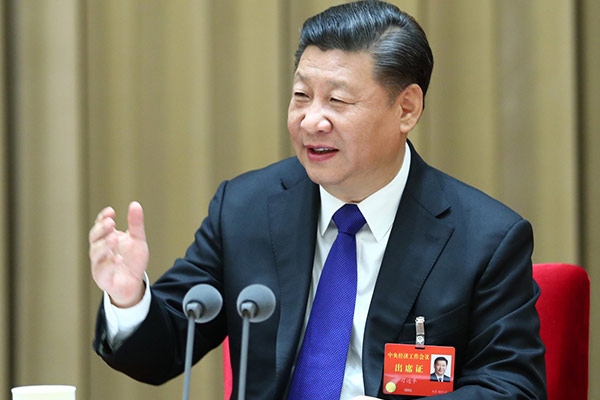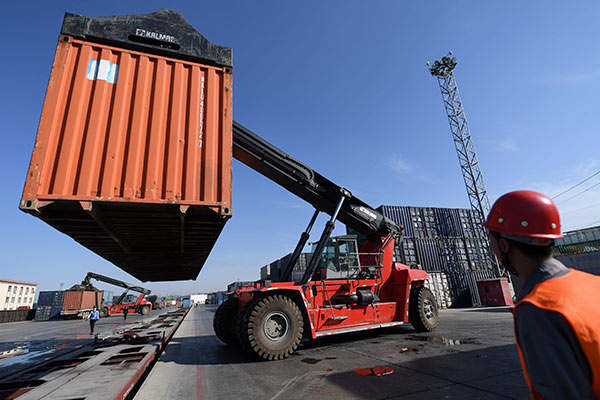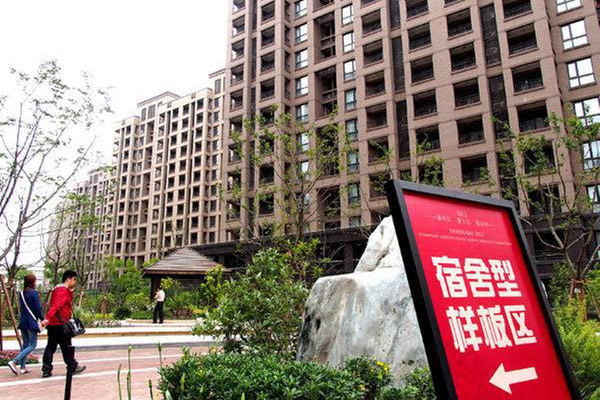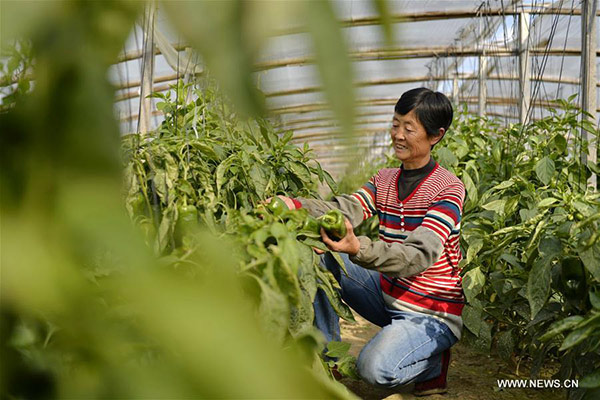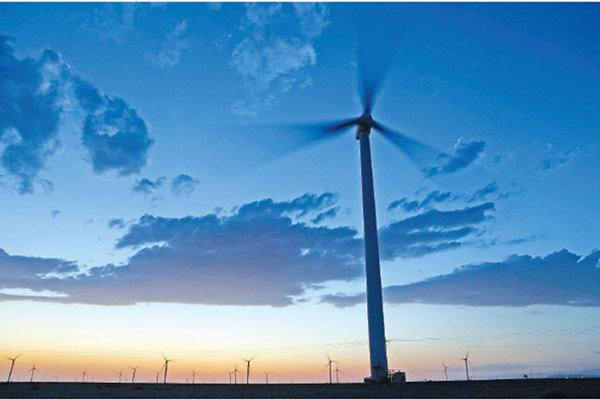Chinese leaders concluded their annual economic conference on Wednesday and set the tone for China's economic policies next year.
The three-day Central Economic Work Conference saw leaders analyze the country's economic performance this year and map out plans for 2018.
Here are eight key facts to take away from the meeting.
1. Xi's thought on socialist economy put forward for first time
Chinese President Xi Jinping addresses the Central Economic Work Conference in Beijing. The conference was held in Beijing from Dec 18 to 20.[Photo/Xinhua]
The meeting put forward Xi Jinping Thought on Socialist Economy with Chinese Characteristics for a New Era for the first time, mainly focused on a new development concept and stresses the Party's leadership in economic management, people-oriented development, the new economic normal, the market's role in resource distribution and supply-side structural reform.
The thought is the "theoretical crystallization" of the past five years of practice in pushing forward China's economic development, and the "latest fruit" of socialist political economy with Chinese characteristics, according to a statement released after the meeting.
2. Push ahead high-quality development
A worker watches a crane loading cargo in Urumqi, capital of the Xinjiang Uygur autonomous region.[Photo/Xinhua]
High-quality development is the "indispensable foundation for sustainable and healthy economic development". China must build and improve the mechanisms for pushing ahead high-quality development, according to the statement.
Apart from efficient economic growth, analysts said, high-quality development also entails balanced social and environmentally friendly development.
3. Adopt a prudent and neutral monetary policy and a proactive fiscal policy
A worker counts Chinese currency at a bank in Linyi, East China's Shandong province, on Aug 11, 2015. [Photo/Xinhua]
"Prudent monetary policy should be kept neutral, the floodgates of monetary supply should be controlled, and credit and social financing should see reasonable growth," read the statement from the Central Economic Work Conference. "Meanwhile, the proactive orientation of fiscal policy will be maintained, while the structure of fiscal spending should be optimized."
The exchange rate of renminbi will keep "basically stable at a reasonable equilibrium level". And concrete measures will be taken to strengthen the regulation of local government debt.
4. Forestall financial risks
The People's Bank of China is seen in this file photo, taken in Beijing. [Photo/Xinhua]
Authorities will continue to crack down on illegal activities in the financial industry to forestall risks.
In the coming three years, the country will seek to foster a "virtuous circle" between finance and the real economy, between the finance and property sectors, as well as within the financial system.
5. Housing system encouraging both purchase and renting
Prospective tenants visit public rental housing at the Xinyue apartments in Shanghai on May 15, 2013. [Photo/Xinhua]
China will move faster to put in place a housing system that ensures supply through multiple sources, provides housing support through multiple channels, and encourages both housing purchases and renting in 2018.
6. Focus on targeted poverty reduction measures
A woman harvests green peppers in Houshawa village of Xinhe county, North China's Hebei province, on Nov 5, 2017. Vegetable cooperatives were built in Houshawa village in recent years, bringing more than 370 households out of poverty. [Photo/Xinhua]
In the coming three years, the country will work to ensure the quality of poverty reduction efforts under current standards and focus on helping special groups and eradicating abject poverty.
As of the end of 2016, there were 43.35 million Chinese living below the national poverty line. The country has pledged to eliminate poverty by 2020.
7. Pollution prevention
A wind turbine system generates energy in the Xinjiang Uygur autonomous region. China has made a huge investment in wind and solar power to promote green development. [Photo/Xinhua]
Along with risk control and targeted poverty reduction, pollution control will also be a key battlefield. Authorities will aim for a significant reduction in major pollutant emissions and improvement in the overall environment.
Efforts should be focused on adjusting the structures of industries, eliminating outdated capacity and making the skies blue again, according to the meeting.
8. Boosting imports for balanced trade
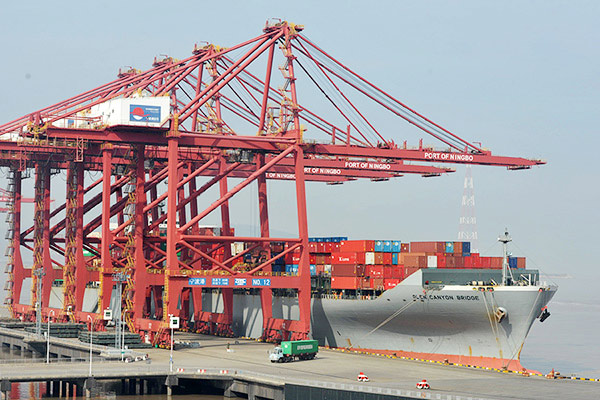
A container ship docks at the Port of Ningbo in East China's Zhejiang province.[Photo/Xinhua]
China has vowed to increase imports and cut import tariffs on some products to promote balanced trade as part of its effort to push forward a new pattern of all-round opening up.
The country will expand free trade zone pilot areas and guide foreign investors to operate in the country in an efficient way, according to the statement released after the Central Economic Work Conference.
The statement also asserted the country will push for nationwide implementation of a pre-establishment national treatment system as well as a negative list, which determines where foreign participation is prohibited or limited.
The negative list will become shorter and shorter, as the country improves laws and regulations and enhances protection of intellectual property.

















